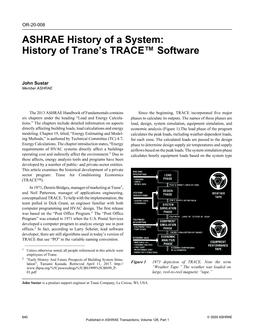Describes a study conducted between October 1990 and April 1992 in which the conditions within four crawl spaces were monitored in a six-unit building in a condominium complex in Petaluma, California. Wood moisture contents and ambient conditions were periodically monitored in the crawl spaces of two end and two interior units in the building chosen for this study. The moisture content of the beams in each monitored crawl space was determined using a resistance-type moisture meter, and equilibrium conditions were estimated throughout the study by periodically weighing small wood sections that were suspended from the joists. Ambient conditions were monitored using a fan-aspirated psychrometer, a hygrothermograph, or temperature/relative humidity probes linked to a data acquisition system. The objective of this study was to determine the change in wood moisture content and ambient conditions in a field situation before and after a ground-cover membrane was installed in the crawl spaces of selected units in this building. When installed, the ground-cover membrane was used on one interior and one end unit. The ground-cover membrane was found to reduce humidity levels in the crawl space and allowed previously wet and decayed wood members to dry out.
KEYWORDS: crawl spaces, comparing, wood, moisture, USA, monitoring, buildings, content, beams, site testing, moisture barriers, vapour barriers, membranes, humidity, psychrometers, hygrometers, probes.
Citation: Symposium, ASHRAE Trans. 1994, Vol.100, Part 1,
Product Details
- Published:
- 1994
- File Size:
- 1 file , 1.2 MB
- Product Code(s):
- D-17959


